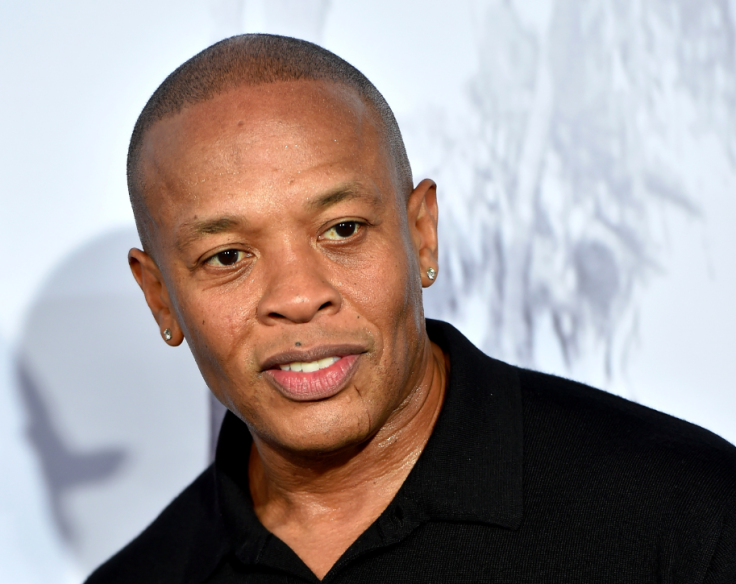Dr. Dre Apologizes To The ‘Women I’ve Hurt’ After 'Straight Outta Compton' Ignores Abuse

The biopic “Straight Outta Compton,” about rap group N.W.A., has been a huge success at the box office, opening last weekend with $56.1 million. The film's executive producer and main subject, Dr. Dre, was commended for the way the movie portrayed police brutality against young black men, but according to several accounts, including one in particular from Gawker, there was one notable glaring void: The movie failed to address the physical abuse Dr. Dre directed at women in those days.
Dr. Dre, whose real name is Andre Young, apologized for the assaults Friday. “Twenty-five years ago I was a young man drinking too much and in over my head with no real structure in my life. However, none of this is an excuse for what I did. I’ve been married for 19 years, and every day I’m working to be a better man for my family, seeking guidance along the way,” he told the New York Times. “I’m doing everything I can so I never resemble that man again.”
Dr. Dre added to the Times: “I apologize to the women I’ve hurt. I deeply regret what I did and know that it has forever impacted all of our lives.”

The mea culpa in the Times Friday follows an interview earlier this month in which Dre said he'd made “horrible mistakes” against women. "I was young, f------ stupid. I would say all the allegations aren't true -- some of them are," he told Rolling Stone. "Those are some of the things that I would like to take back. It was really f----- up. But I paid for those mistakes, and there's no way in hell that I will ever make another mistake like that again."
Earlier, Dre acknowledged the abuse but was dismissive about it. After he was charged with assault in 1991 against then-television host Dee Barnes, he told Rolling Stone he “just threw her through a door” and that it was “no big thing.”
In an op-ed piece for Gawker, Barnes said violence is a vicious progression. “It is a cycle of victimization and re-enactment of violence that is rooted in racism and perpetuated by patriarchy,” she said.
In addition to Barnes, two other women who have accused Dre of physical abuse are his ex-fiancé and singer Michel’le and R&B singer Tairrie B.
Follow me on Twitter @mariamzzarella
© Copyright IBTimes 2024. All rights reserved.






















